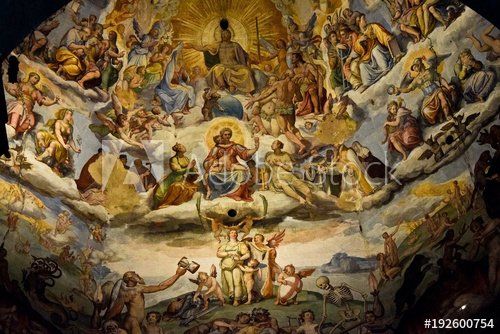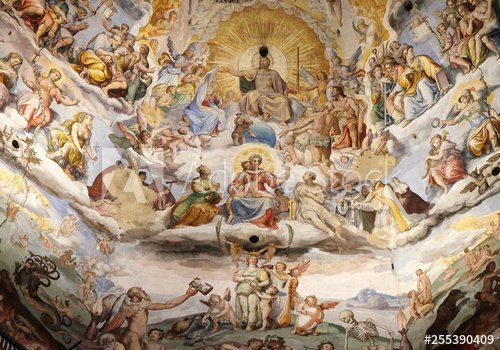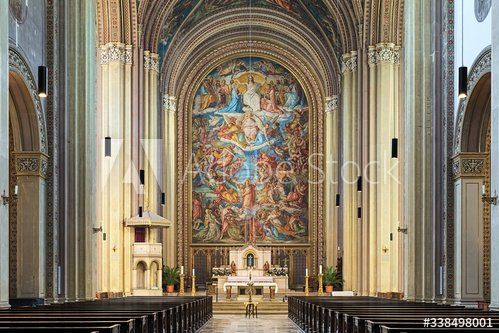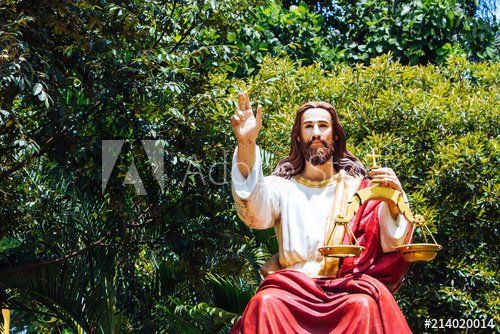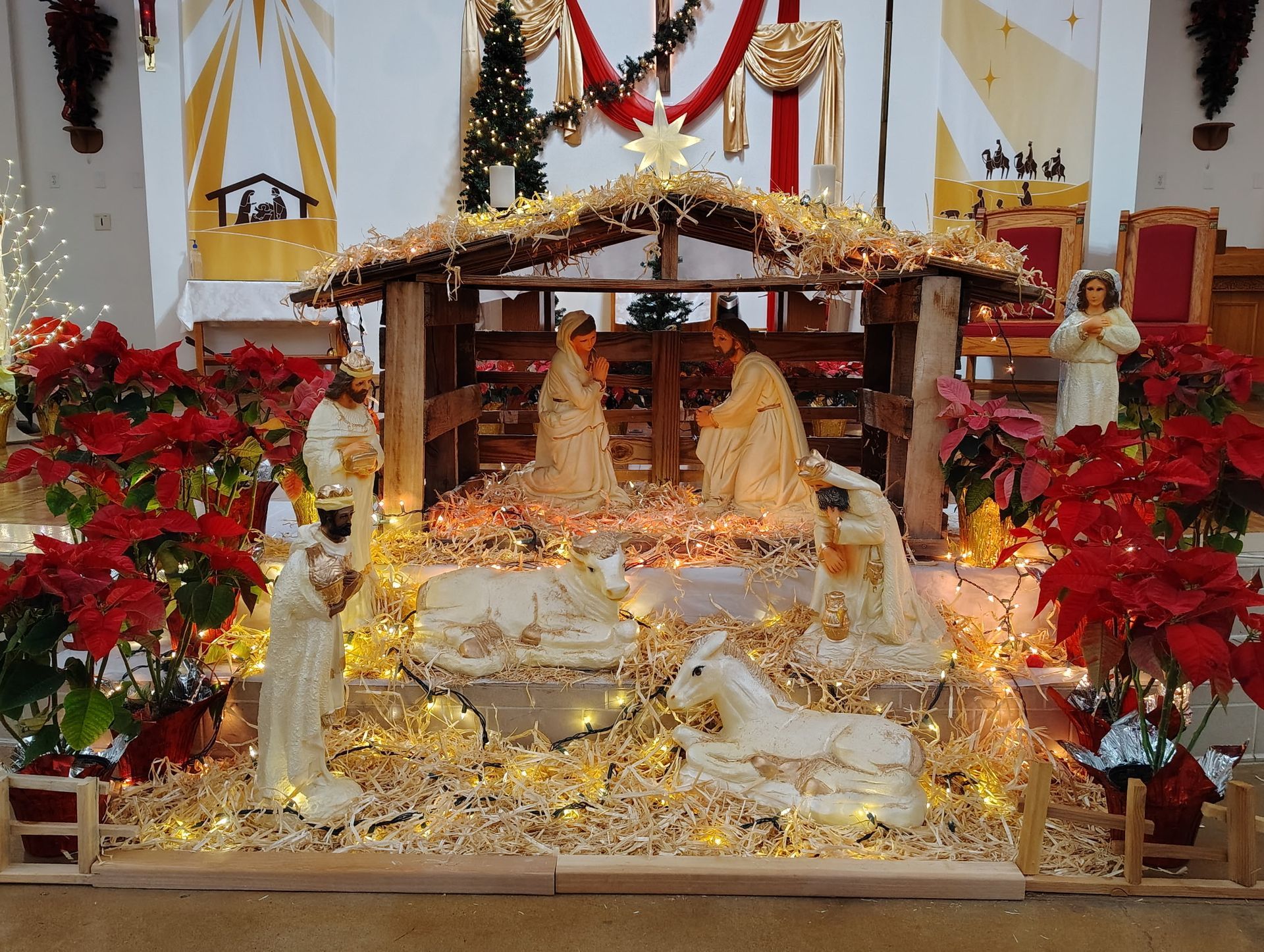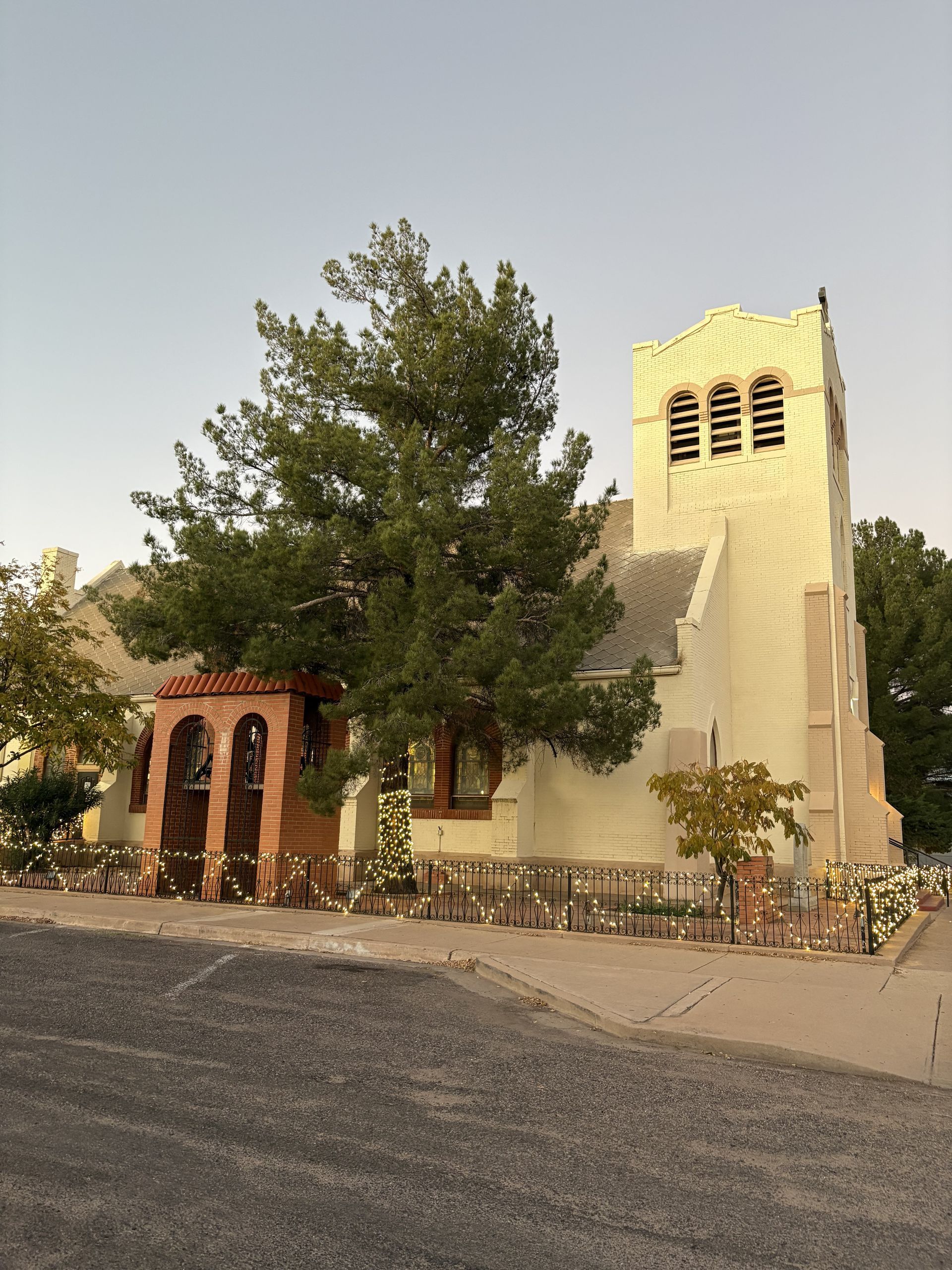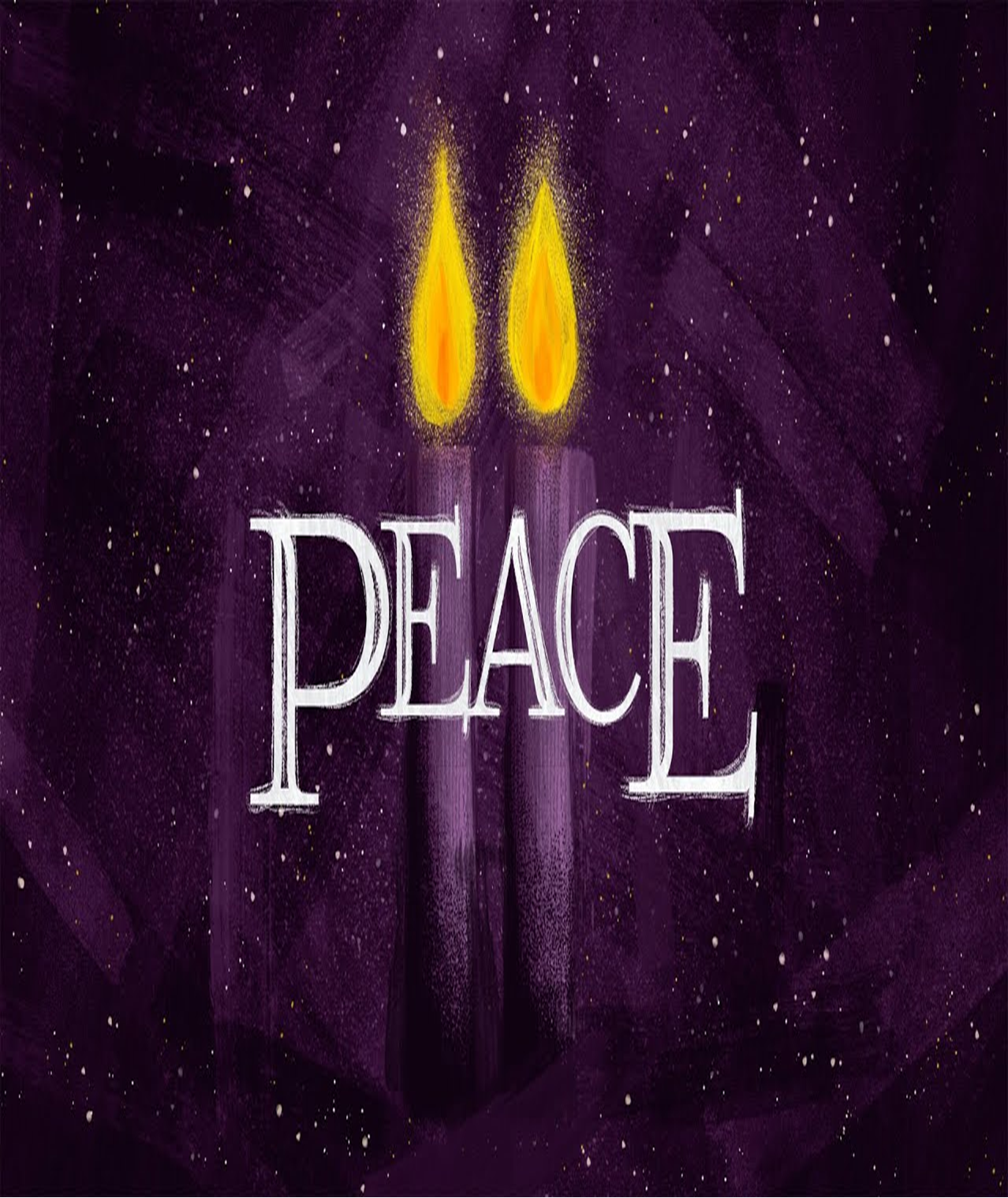On the Solemnity ofJesus Christ the King, the closing Sunday of the liturgical year, Matthew dramatically and graphically portrays (like a masterpiece) the eschatological scene of God’s final judgment. We have seen images, paintings, frescoes of the great last judgment and reminded of the scenario of Jesus appearing as the pantocrator with his right hand offering a blessing and left hand holding the book of the gospels. Many of us have come to know this as the story of the separation of the sheep and the goats. This vision of heavenly glory is apocalyptic in nature, the time when God will pass judgment on all of us. This whole discourse is profoundly interesting, deeply moving but also puzzling for placing huge emphasis on good works on the plight of the underprivileged and dispossessed.
And the criterion is, “Whatever you did for one of the least of brothers of mine, you did for me.” There is only one requirement and that is, love of neighbor, a simple and complex gesture but has eternal consequences. We will be judged on the basis of our response to the message but also to the messengers (the least among us).
It is intriguing and troubling in the sense that love of neighbor is the sole criterion for entrance to heavenly glory. If that is so, does this mean that doctrine, belief, liturgy and rituals, profession of faith don’t matter or unimportant? This sounds like an oversimplification of faith. Does love of neighbor override the outward expression of faith in liturgy and ritual? Does love of neighbor render the practice of a high standard of morality, charismatic gifts, volunteerism, worthless? No, not all. It doesn’t say that. The last judgment assumes that love of neighbor is borne out of faith, fueled by deep belief in the truth that Jesus wanted us to do. Act of charity springs from faith. The test of true and genuine religion doesn’t lie on the sublimity of religious talk but action.
The beauty, grandeur and the heart of the entire pericope lies in his address to the righteous, “I was hungry and you gave me food, I was thirsty and you gave me drink, a stranger and you welcomed me, naked and you clothed me, ill and you cared for me, in prison and you visited me…Amen, I say to you, whatever you did for one of the least brothers of mine, you did for me” (Mt. 25: 35, 36, 40).
Accordingly, when the Son of Man comes in all his glory accompanied by all his angels in his glorious throne, in the end-times, the day of his final appearance pronouncing sentence to all the nations (humankind), he will separate the righteous from the wicked, reward the good and punish the evil carried out in a juridical process. Tables will be turned. Those who take care of the people we normally ignore and are objects of neglect will be rewarded while those who don’t will have to pay the consequences. The judgment scene involves the setting- apart of the guilty from the righteous taken from the shepherds’ daily routine of separating the goats (need warmer place) from the sheep (prefer open-air at night). The sheep occupy the right hand of the king, a place of honor while the goats to the left, the exact opposite. The first reading from the book of the Prophet Ezekiel 34: 11-12, 15-17 presents a similar scenario about the Shepherd tending the sheep, judging and separating between one sheep and another. This judgment, however scary, performed by the shepherd is done always out of love, in charity. The responsorial psalm which brings comfort and consolation has become the all-time favorite in funeral and memorial services, “The Lord is my shepherd, there is nothing I shall want. Fresh and green are the pastures where he gives me repose” (Psalm 23: 1-2). Our God as the shepherd will never leave his flock in moments of great distress: global health emergency. The glorious Christ reigning over heaven and earth will make his presence felt. This decision of the great judgment, the final retribution will be based on love rendered to the least of the world, that is, the troubled (the addicted which leads to destructive behaviors, the imprisoned and the sick/the ill) and the weak, the needy, the homeless in our midst, the poor and the vulnerable (the hungry, the thirsty, the naked, the stranger) that is, anyone in need (consistent with the centuries-old religious tradition that the nations refer to regardless of race, status, culture and nationality. The type of people we often blame for society’s ills whom God has also breathed the breath of life. We will be judged according to what we have done and what we have failed to do. The accursed, that is, those who reject God’s messengers will go to eternal punishment while the just that is, those who graciously received both the message and the messenger will inherit eternal life.
Surprisingly, both the wicked and righteous have the same surprised reaction and question: “When did we see you hungry, thirsty, naked, in prison or stranger, ill?” Jesus replied with, “Whatever you did or did not do to the least brother of mine, you did to me.” It is frightening and makes us feel terribly bad as quite obviously all of us stand guilty of omission before God and our fellows. Sin in this context is the failure to do something. There is always something we missed which we confess at the Confiteor, at the introductory part of the Mass. Our hands are tied. Our budgets low. We can’t help everyone. We have to take care and secure ourselves first before others. It’s a complex scenario and resources are limited. Issues blur our minds to the extent that we don’t know where to start. We find ourselves helpless in the face of endless need for the basic human necessities here and across the globe. Christian charity is about our response to a human need and not so much the size of our financial portfolio. A charitable act springing from faith, borne out of love to alleviate poverty (build a home, feed the hungry, provide shelter and give company, etc) which can potentially solve half of the world’s economic problems in a heartbeat isn’t simply a phenomenal Philanthropy but a passport, an entry by the righteous to eternity.
We have high dreams and lofty ideals of the world. We want to make and contribute to a safe and better world. However, Christian concern doesn’t mean engaging in global philantrophic efforts although that may work to those who have the skills and means but what the text tells us is the simple and pure gesture of feeding the poor and the hungry, providing drink to the thirsty, hospitality to strangers, clothing the naked, visiting the sick and sharing loneliness with the prisoners. Anyone who performs this act of kindness has a deep spiritual foundation. Such charitable act doesn’t come out of bubble or from nothing. On the Christian view, it’s about fulfilling what God wanted us to do in the first place. In the name of charity, you can’t go wrong. In fact, it is better to err on the side of charity. When we offer help and reach out, it’s not so much about significant results as it is about the good deed itself. Good works have spiritual foundations. Engagement is social action is centered on Christ. We know it’s the right thing to do but exactly, the thing we are afraid to do. Noticeably, in this drama of judgment, which is strikingly alarming, there was no mention whether terrible sins committed in the past matter or not.
There is nothing to be scared. In fact, we should be encouraged to hear the great judgment so that we can prepare well for the final countdown “Come, you who are blessed by my father says the Lord, inherit the kingdom prepared for you from the foundation of the world” (Mt. 25: 34). It should inspire us to work harder especially as we approach the joyous season of Christmas…
